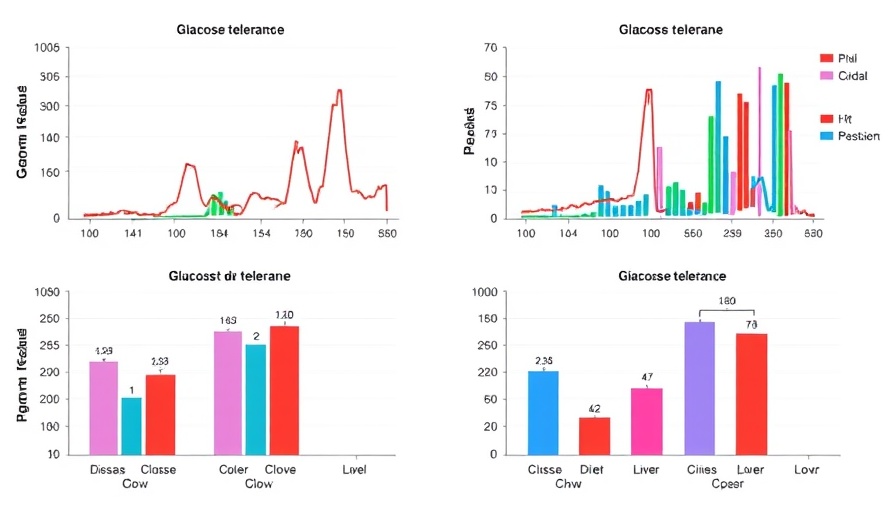
P-Rex2: A Central Player in Glucose Homeostasis
P-Rex2 is not just another protein floating around in our cells; it plays a crucial role in managing how our bodies handle glucose. As you munch on your favorite snack, your body is busy regulating blood sugar levels, ensuring they stay within a healthy range. Understanding how P-Rex2 functions, particularly its ability to suppress glucose uptake into the liver and skeletal muscles, sheds light on potential new avenues for treating conditions like type 2 diabetes. It seems we might be looking at a dual role for P-Rex2: an insulin-sensitive hero that might also have a hidden agenda of keeping glucose levels in check.
Why Should You Care About Glucose Homeostasis?
Glucose homeostasis is not just for the lab-coat-and-goggles brigade; it directly affects everyone’s daily lives. Keeping blood sugar levels balanced is crucial for preventing chronic conditions such as obesity, metabolic syndrome, and type 2 diabetes. With rising obesity rates and a sedentary lifestyle dominating our culture, understanding the mechanisms of glucose management can empower you to make better lifestyle choices—from what to eat to how to exercise. It’s not doom and gloom; it’s about making informed decisions to optimize our wellness daily.
Insulin Sensitivity: The Good, the Bad, and the P-Rex2
Now, imagine P-Rex2 strutting around as the unlikely guard of glucose levels. In studies with specialized mice, researchers discovered that P-Rex2 is vital for insulin sensitivity but also limits glucose clearance. In simpler terms, it’s great at responding to insulin but can also play a frustrating role in how much glucose makes it into your liver or muscles. So, while P-Rex2 helps you out, it throws a wrench in the works too—keeping things in balance is its game. This means that an understanding of P-Rex2 could lead to targeted strategies that enhance insulin sensitivity without triggering the negative aspects of glucose suppression.
Meet Gpr21: The Orphan Receptor with a Purpose
The study also introduces an orphan GPCR (G protein-coupled receptor) known as Gpr21 as a P-Rex2 target. Orphan receptors are like the mysterious relatives you hear about but have never met. Gpr21's influence on glucose clearance could hold the key to unlocking new treatments for diabetes. Imagine a world where we could manipulate Gpr21 trafficking to increase glucose clearance—how exciting would that be? With further research into these pathways, we could enhance glucose regulation, reducing the risk of various metabolic diseases.
P-Rex2: The Catalyst for Change in Research
Research into P-Rex2 highlights another critical element in the larger picture of glucose metabolism and related diseases. It’s not just about one protein; it’s about how our cells communicate, adapt, and respond to the world around them. This means we need to look at holistic approaches in our health and wellness strategies. In essence, let's start thinking of glucose regulation as a team sport where each player (or protein) contributes to your overall health and longevity goals.
Practical Insights: How P-Rex2 Research Can Affect Your Daily Life
So, what can you do with all this P-Rex2 knowledge? Well, you can leverage the insights from cutting-edge research to inform your lifestyle choices. Adopting a diet high in fiber and rich in whole foods can positively affect your insulin sensitivity, potentially helping to balance the P-Rex2's dual roles. Additionally, incorporating regular exercise can stimulate glucose uptake in muscle cells, reducing reliance on P-Rex2 for that function, which might help in maintaining effective glucose homeostasis.
Embracing the Future of Health Through Research
As we dive deeper into the science of longevity, remember that knowledge is only powerful when acted upon. By understanding how proteins like P-Rex2 interact with your cells, you’re already ahead of the curve. You now possess insights to tweak your diet or lifestyle, potentially optimizing your healthspan. In conclusion, as research continues to unfold, staying informed will empower you to make better choices—because who doesn’t want to age like fine wine?
For those eager to explore the frontiers of health optimization, engage with our community for more tips and insights that focus on bridging the gap between cutting-edge research and practical application in your daily life.
 Add Row
Add Row  Add
Add 




Write A Comment